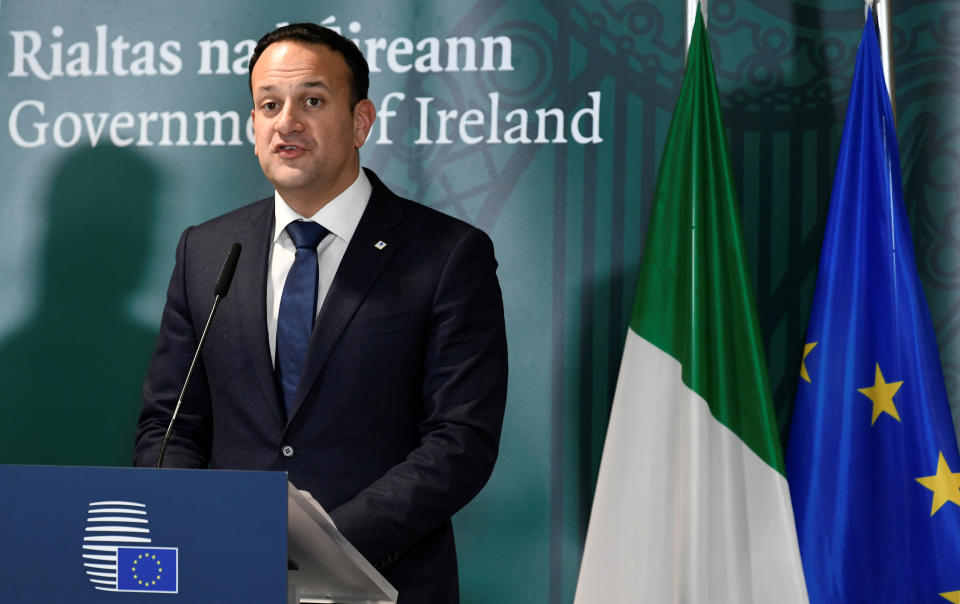As Westminster votes, Ireland steps up no-deal Brexit planning

The Irish government on Tuesday stepped up its no-deal Brexit planning just as MPs in Westminster were preparing to vote on prime minister Theresa May’s deal with the European Union.
Ministers discussed four areas of concern at a cabinet meeting, including what legislation would be needed to prepare for a no-deal scenario, the medicine supply, transport connectivity, and the Common Travel Area with the UK.
Legislation will be required to mitigate the effects of a no-deal Brexit across some 21 diverse areas, including copyright law, railway safety, broadcasting and health insurance.
Most of these issues will be dealt with in one single “omnibus” bill, Irish prime minister Leo Varadkar said. The bill will not be published until late February, and will be considered by Irish parliament in March.
“While all eyes are on the House of Commons tonight, it is important the government’s planning continues for all outcomes, including no deal,” said Simon Coveney, the deputy prime minister and foreign minister.
READ MORE: The five main possible outcomes if the Brexit deal is rejected
“A no-deal Brexit will have a significant impact on Ireland – these measures being taken by the Government are designed to limit the damage. It remains our view that the only way to secure an orderly withdrawal is to ratify the Withdrawal Agreement.”
Despite the planning, Varadkar on Tuesday faced criticism from Fianna Fáil, the party which props up his government in Ireland’s parliament.
Its leader Micheál Martin said that parliament had not been kept adequately informed and that a contingency planning document published in December was too light on detail.
Planning
The Irish government reaffirmed that, even in a no-deal scenario, its goal is to see the continued operation of the Common Travel Area, which for decades has seen Irish and UK citizens freely live, work, and study in each respective country.
The Common Travel Area predates the EU and is not dependent on it.
At least 60% of medicines used in Ireland either come from or transit through the UK, something that has prompted careful consideration by Ireland’s health ministry.
Though agencies “do not anticipate an immediate impact on medicine supplies” should there be a no-deal Brexit, some 24 medicines have been added to a watchlist to ensure continuation of supply.
READ MORE: Irish business groups warn against ‘devastating’ consequences of no-deal Brexit
Meanwhile, ministers also discussed the route that €21bn (£19bn) worth of Irish goods take to continental Europe, which sees them travel via the UK’s road and ports network.
Known as the “landbridge”, this route has been subject to significant fears, since the majority of the trade is in time-sensitive products such as agri-food.
Based on consultations with the shipping sector, Ireland’s transport ministry has determined that it would be possible to ship goods directly to continental Europe.
The moves come ahead of Tuesday’s “meaningful vote,” in which May’s deal is widely expected to be defeated.

 Yahoo Finance
Yahoo Finance 
